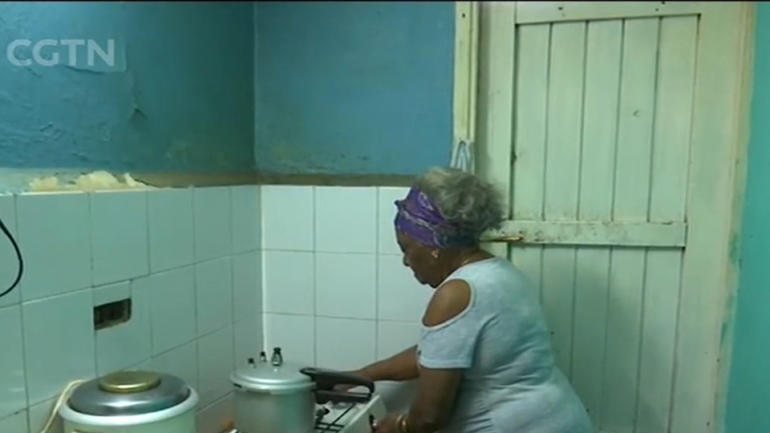The Cuban government has issued a warning to citizens. The country is experiencing a shortage of cooking gas — the result of U.S. sanctions.
CGTN’s Luis Chirino reports from Havana.
The Cuban government recently announced citizens about a shortage of liquid petroleum gas, used here for cooking, as a result of U.S. sanctions against the island nation. The announcement led many people to rush to gas cylinder dispatch centers, which saw long lines of clients for several days.
“People were worried that they might not get any more gas, so the demand went far beyond the availability,” said Mario Avila, Liquid Petroleum Gas Dispatcher.
The official announcement issued by Cuba-Petroleum Oil Company and the Ministry of Energy and Mines said that U.S. sanctions aimed at hampering Cuban fuel imports led to the current gas shortage.
“In late 2019, the U.S. sanctioned the Cuban energy company Panamericana, which guaranteed the country’s gas imports. But as a result of the U.S. sanctions, our gas providers in this part of the world cut deliveries to Cuba,” Lucilo Sanchez, Cuba-Petroleum Domestic Fuels told CGTN.
In order to cushion the import gap, authorities imposed restrictions on gas deliveries by changing delivery times to all state and private customers.
In the domestic area some 1.7 million Cuban households were affected by the fuel shortage. All those families now have to wait longer periods of time to get their cooking gas.
Many homes in Cuba are not connected by fuel lines so residents depend on bottled gas and the spreading out the deliveries relieved the initial uncertainty but for many households it’s hard to make ends meet.
For senior citizen Josefa Sanchez the gas shortage has made an impact on her family everyday life.
“After they extended the gas delivery period to nearly two times the previous one, we were affected, and some have resorted to using electric cooking appliances. There are four in my family, including my two-year-old granddaughter, but the available gas in no longer enough to meet our cooking needs. I used to receive a cylinder every 19 days— now it’s about once a month.”
Cuban energy authorities are working on ways to ease the crunch, said Lucilo Sanchez. “We have been forced to look for new providers in other parts of the world, at higher costs but we need to stabilize deliveries and return to normality.”
While waiting for a stable solution to the fuel shortage, Cubans have to adapt and live under the current gas restriction measures.
 CGTN America
CGTN America

